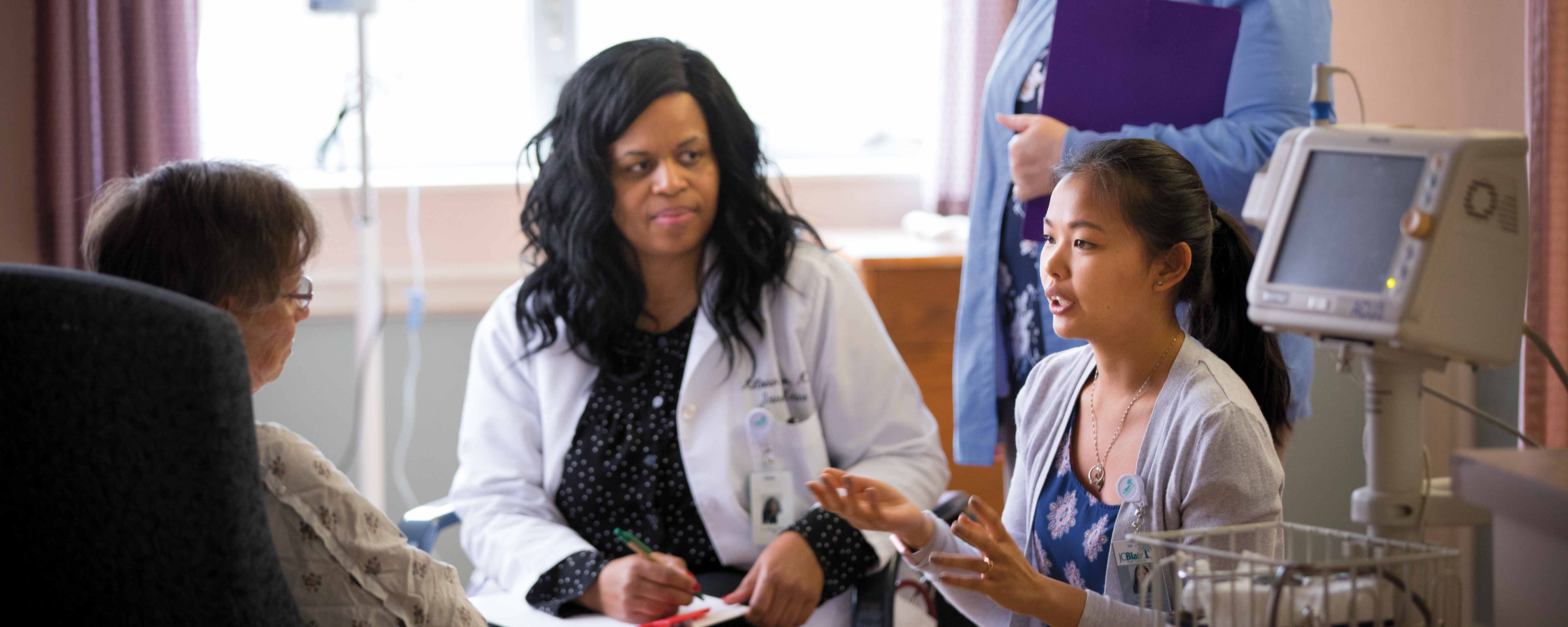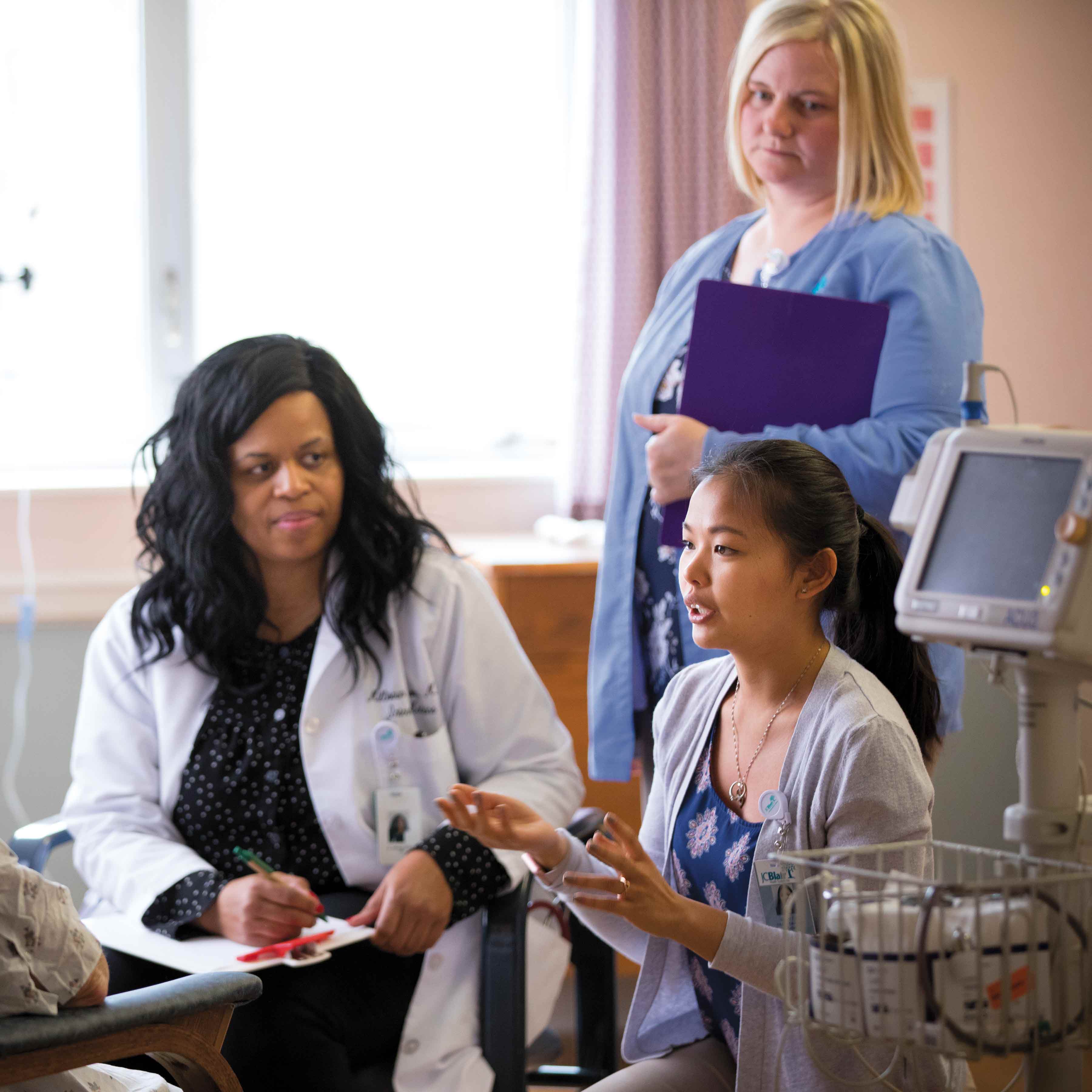Juniata has long been preparing students to pursue healthcare with concern and service at the forefront of their minds. Faculty recognize the need for students to safeguard their compassion so they will continue to emanate it through their professional training and their careers.
“There’s a lot of research showing students enter medical school as highly empathetic individuals; and something about that rigorous process, they leave with less empathy than when they started,” says Dr. Mandy Siglin, former director of the health professions program. “We don’t want to send them out into the world with a lost level of empathy.”
“There are a couple of ways that we directly address this. We talk to students about the challenges of being in healthcare. We address those primary concerns early on and acknowledge this is currently happening,” says Dr. Siglin. “We go through and make sure they maintain that level of empathy and tell them to be aware of maintaining it.”
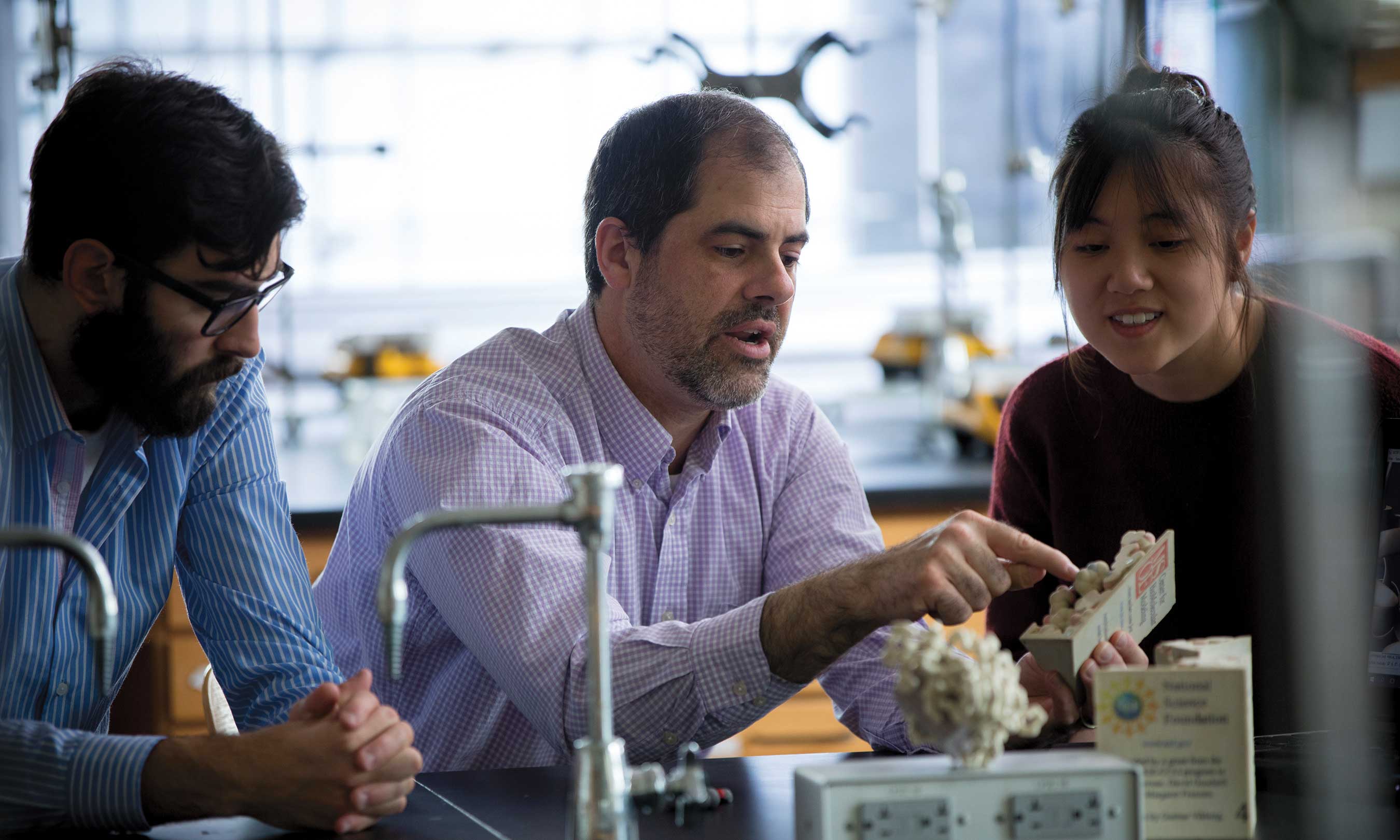
“... the idea was that research is never done in isolation, or a broader application of that is if you are not in a scientific profession you should not remain ignorant of science and vice versa.” Daniel Dries assistant professor of chemistry
Integrative classes between seemingly unrelated disciplines also facilitate a profound sympathy for the plight of others.
“We have an all-encompassing healthcare curriculum throughout Juniata,” Dr. Siglin says. “With healthcare, history, philosophy, and communications, students learn what I would say is the human side of healthcare.”
That includes classes taught in conjunction with another field or professor. Daniel Dries, assistant professor of chemistry, and Jim Roney, I. Harvey Brumbaugh Professor of Russian and International Studies, co-taught a class demonstrating that no discipline or idea stands alone, but instead every element has far reaching consequences.
“We first started to co-teach a class from lab to world,” says Dries. “It was a freshman seminar and the idea was that research is never done in isolation, or a broader application of that is if you are not in a scientific profession you should not remain ignorant of science and vice versa.”
It was Dries’ hope that the class would be half full of science majors and half full of non-science majors. Two modules to the class were genomics and infectious disease.
“The idea was to talk about the extent of science and the ethical, philosophical, arts, humanities, and social studies that go into genetics,” Dries says.
Another class he recently taught tackled issues about water and gave students a deeper understanding about how subjects ranging from health, the economy, social studies, and science—to name a few—are intertwined.
“It was called ‘Water Wars’ and was about access to water and how that impacts people in communities, the economy, and the globe,” says Dries. “We started talking about water rights and whether water access is a human right. Also about the commodification and privatization of water and what that does to communities.”
His class watched the Spanish film, Even the Rain, about the water shortage in Bolivia. They shared articles and asked students to talk about them.
“Such as how there are still lead pipes in many schools around the country, and about the global monitoring of water shortage areas, and areas that may cause political conflict,” he says. “We talked about a big, multinational company siphoning water out of an area where indigenous people don’t have access to clean water and we talked about how we may run out of freshwater by 2050.”
Classes such as “Water Wars” provide a global perspective where thoughtful questions are posed. This imparts on students a greater appreciation of their impact on others.
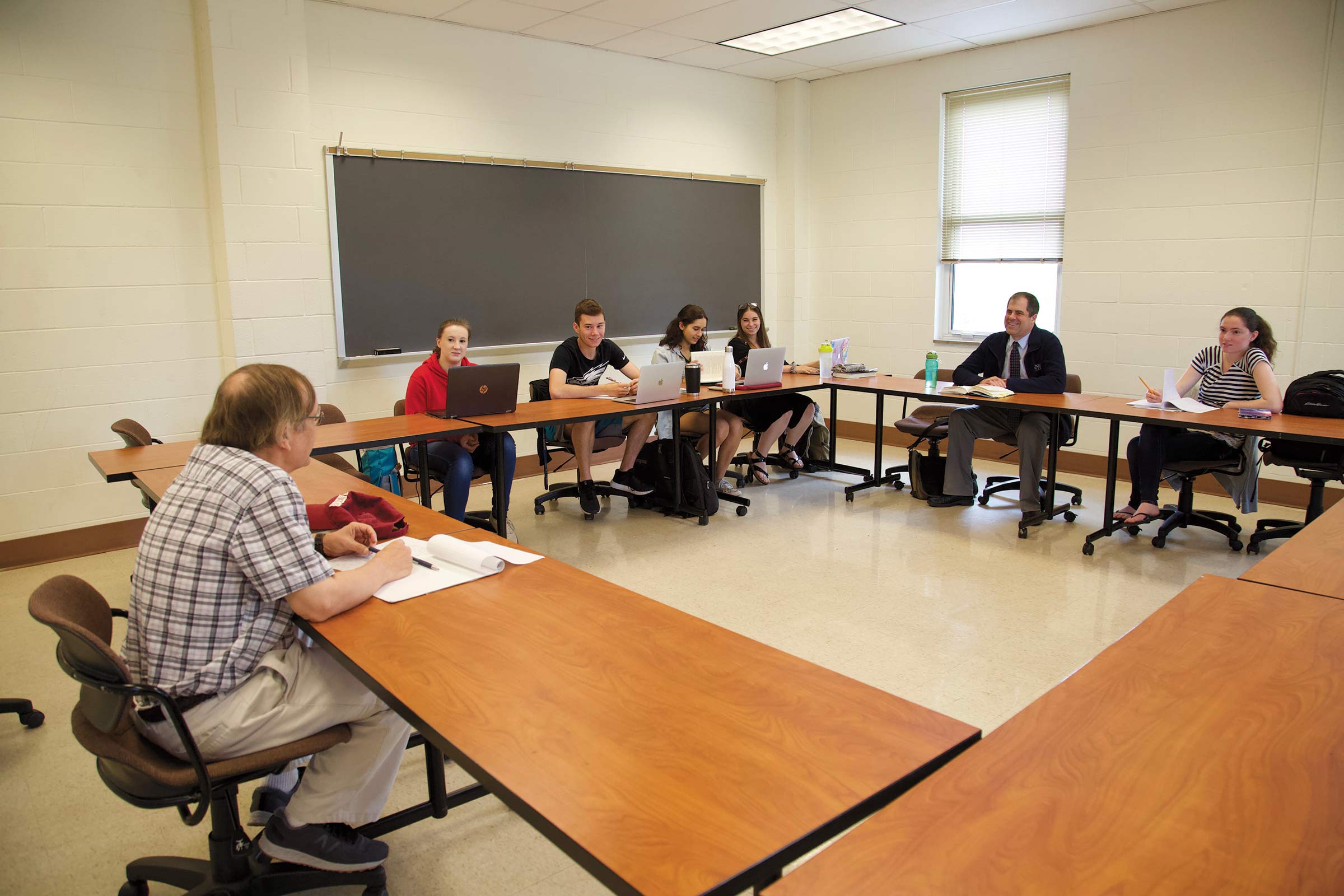
“With healthcare, history, philosophy, and communications, students learn what I would say is the human side of healthcare.” Dr. Mandy Siglin former director of the health professions program
Dr. Clay Cooper ’13 of Hummelstown, Pa., recognized this universalness and the importance of inclusiveness and applied it to his studies. He graduated with a biology, Spanish and Hispanic studies degree.
“The reason I learned Spanish is for those who become sick who are in the healthcare system,” says Dr. Cooper. “It can be intimidating to have things explained by English providers. All of the uncertainties and what ifs of being a patient and trying to navigate the system when something is critical or urgent and not understanding– that would be extremely difficult.”
He recently studied at the Pennsylvania State University earning M.D. and M.B.A. degrees. He is now at Duke University studying family medicine and uses his second language to help alleviate the worry of the people who he is treating.
“I’m able to walk into a room and talk to them in their native language, put them at ease, and help them understand what is going on with their case,” he says. “I can see it on their faces that they are more at ease knowing they will be taken care of by someone who understands them verbally and their culture, too.”
He says he uses Spanish every day at the medical clinic in the hospital where he is a resident.
“I rotate to different areas of the hospital—such as the nursery—and talk to multiple Spanish-speaking families each day. Sometimes they have no family members around and I spend time with them and talk to them. Sometimes it’s about what it is like to be a parent who now has to care for that newborn in their arms,” says Dr. Cooper. “It’s very rewarding to work with people who might not have gotten the best care otherwise if they had to go through an interpreter.”
He is able to positively impact patients daily by providing them with something basic, but necessary, treating them in the language they know and understand.
Soumya Polavarapu ’19 from Bridgewater, N.J., a first-generation college student, also wants to be a catalyst for change in the healthcare industry. She graduated with a biochemistry degree with an emphasis in art history and is anticipating being as impactful as Dr. Cooper in her profession, but with a public health twist.
Polavarapu acquired a profound interest in public health through her studies at Juniata. She credits Juniata for opening her eyes to the human side of medicine.
“My experience at Juniata made me more passionate about medical humanities and the problems in healthcare. Is it lack of care or lack of access to care?,” she says. “Why is it so hard for people to access care? I came to Juniata just to do research and to go to medical school and then the professors exposed us to other things. I found my true passion for medical humanities.”
Her newfound passion and strong academic work led to her receiving the Andrew Mutch Scholarship from the St. Andrews Society of Philadelphia. The award enabled her to spend her senior year at the University of Glasgow in Scotland where she studied healthcare systems of different parts of the world.
“I intended to understand global healthcare problems and how history impacted current policies,” says Polavarapu.
Polavarapu was also involved in a “Day on the Hill” where students go to Washington, D.C., to voice healthcare opinions. She is now enrolled in medical school at Lake Erie College of Osteopathic Medicine and wants to pursue a master’s degree in public health.
She aspires to continue to understand the plight of others and be a change maker in healthcare.
“I hope to join Doctors Without Borders and I want to work in public health and healthcare policy,” Polavarapu says.
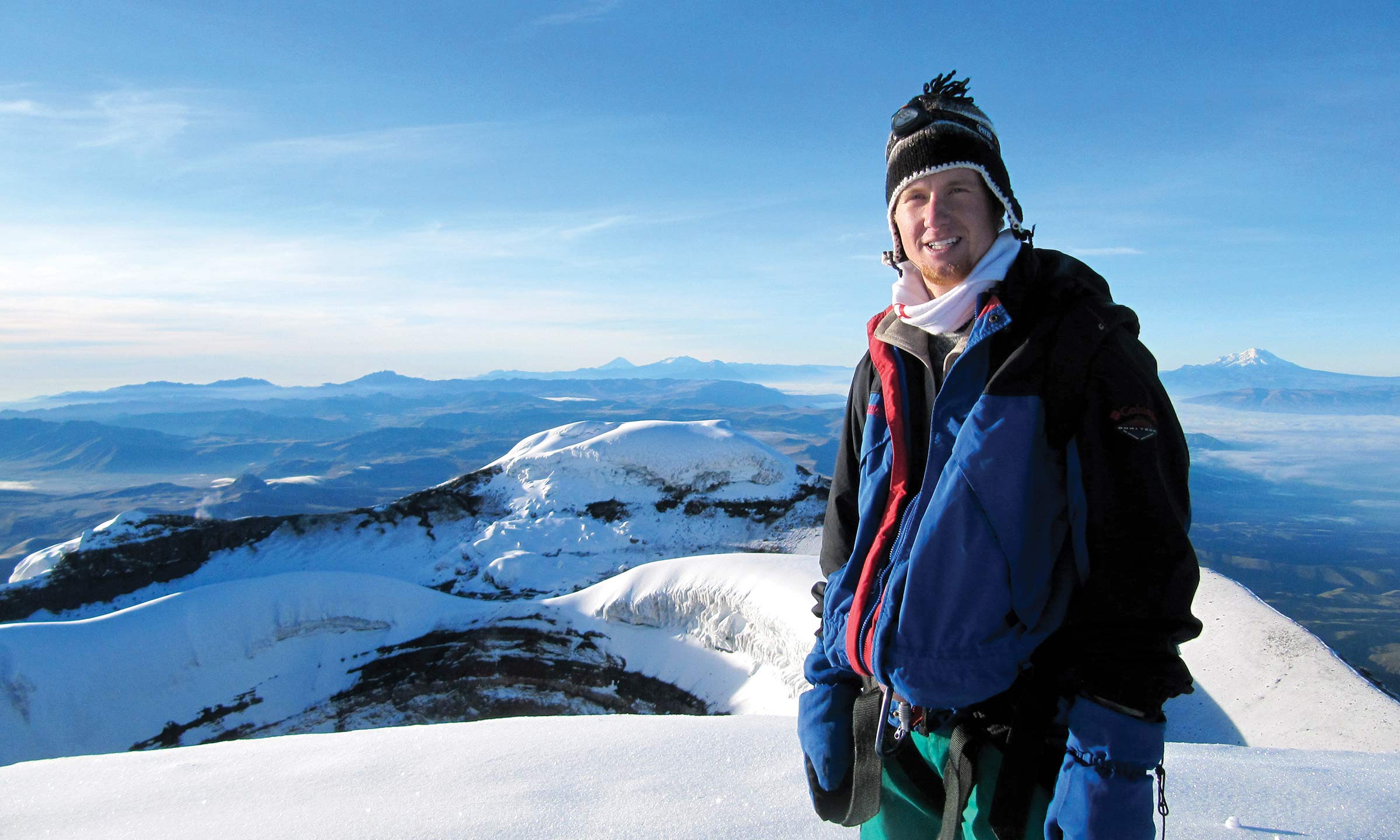
“I’m able to walk into a room and talk to them in their native language, put them at ease, and help them understand what is going on with their case. I can see on their faces they are more at ease knowing they will be taken care of by someone who understands them verbally and their culture, too.” Dr. Clay Cooper ’13
“I hope to work in hospital healthcare administration and the government to reform healthcare. All should have access; I want to help remove the barriers.”
Many physicians feel similarly stifled in medicine due to the obstacles they face in patient care. Dr. James Madara ’71, works to eliminate the dichotomy that physicians encounter between their desire to care for patients and the pull of monotonous clerical tasks.
Dr. Madara, who now lives in Chicago, Ill., is the executive vice president and chief executive officer of the American Medical Association. Before his current role, he served students and patients while in teaching and leadership roles at Harvard Medical School, the Emory University School of Medicine, and at the University of Chicago.
He is proud of the students he taught and mentored through the years. Many now hold executive level positions at prestigious institutions such as Harvard University, Loyola University, the University of Colorado and the University of Michigan—to name a few.
While Dr. Madara spent much of his career focusing on preparing the next generation of doctors for care and research, he has switched gears and now concentrates on improving the health of our nation.
“Physicians are a big piece of that,” he says. “We need to focus on where we think true healthcare is—around the patient— and then work out from there.”
He has been awarded countless honors and achievements during his remarkable career. He gives credit to his start at Juniata for exposing him to a new way of thinking.
“Juniata taught me to think differently. The small classes gave you the ability to know other people in your class and the faculty, which is really great,” says Dr. Madara. “It gave you a different orientation toward thinking about what you want and what you can do.”
To think about who you are is something Juniata thoughtfully instills in its students. Faculty nurture that intention and provide health profession students with the resources and encouragement to go out into the medical field and have a greater impact.
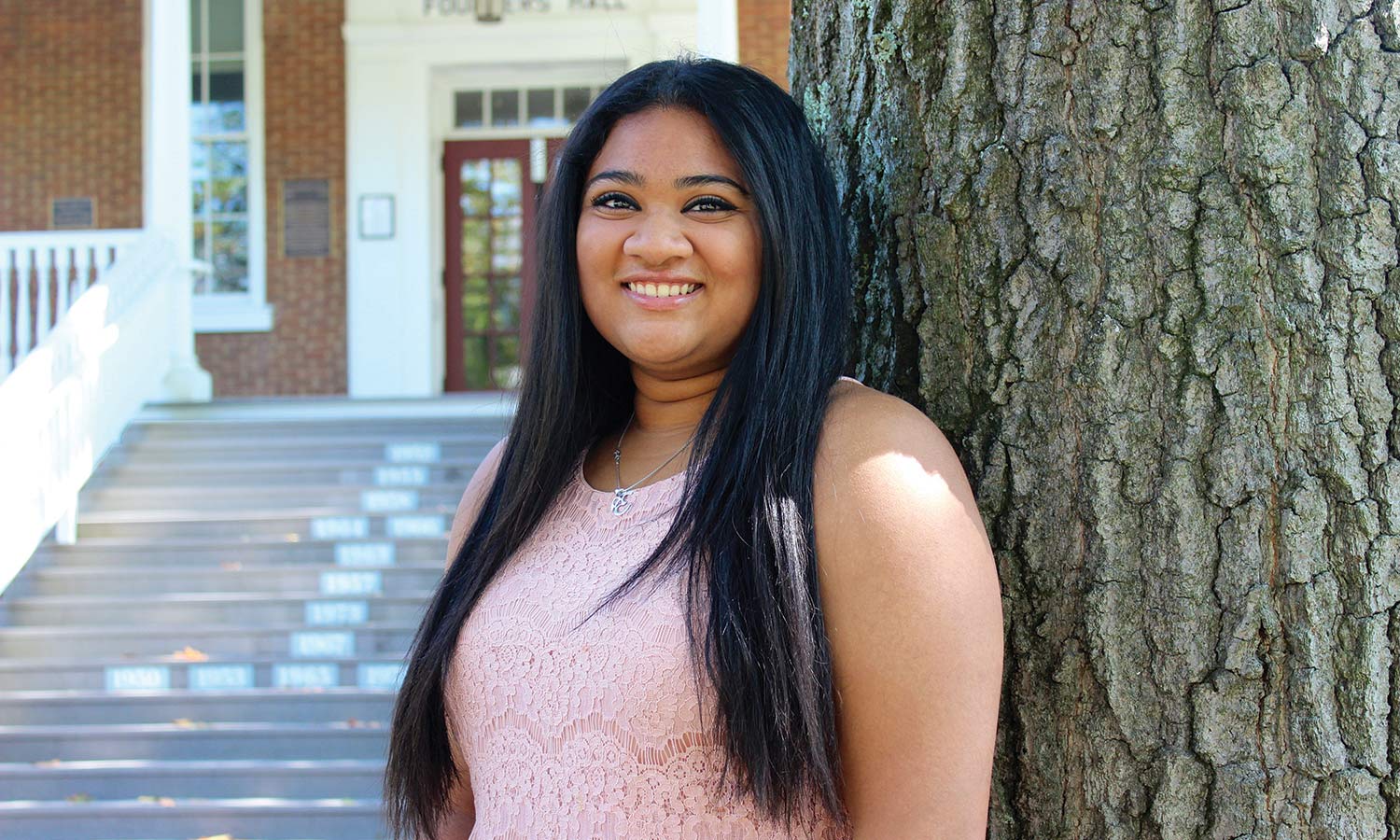
“Why is it so hard for people to access care? I came to Juniata just to do research and to go to medical school and then the professors exposed us to other things. I found my true passion for medical humanities.” Soumya Polavarapu ’19, Bridgewater, N.J.
“Often diagnoses are made with a lot of assumptions, but there is a power dynamic there because you are my doctor,” Dries says. “We want students to listen to what patients do and don’t say. They may be embarrassed to tell you they do not have the money for that or there is an uncomfortable situation at home and I can’t do this. It’s important to think about limitations on healthcare and extra stressors—such as finances and time management—and how those things also affect health and well-being. Some doctors may not link all of those things.”
Dr. Cooper praises Juniata for giving him the tools to be able to think independently and compassionately to treat another culture and help put those patients at ease.
“I definitely feel that my training at Juniata was more rigorous and independent than other classmates at other schools,” says Dr. Cooper. “And the Spanish department was really great. A lot of pre-health students minor in Spanish because of the need for Spanish speaking health professionals. I started out in medical Spanish and it evolved into cultural differences and the approaches to healthcare. I think that helped me to become more culturally competent and able to provide better care for patients, too.”
Polavarapu agreed that Juniata was the agent to help open her eyes to the world and people around her who need support.
“Juniata pointed me in the right direction,” she says. “Juniata watered me and I bloomed into this person who will help others.”
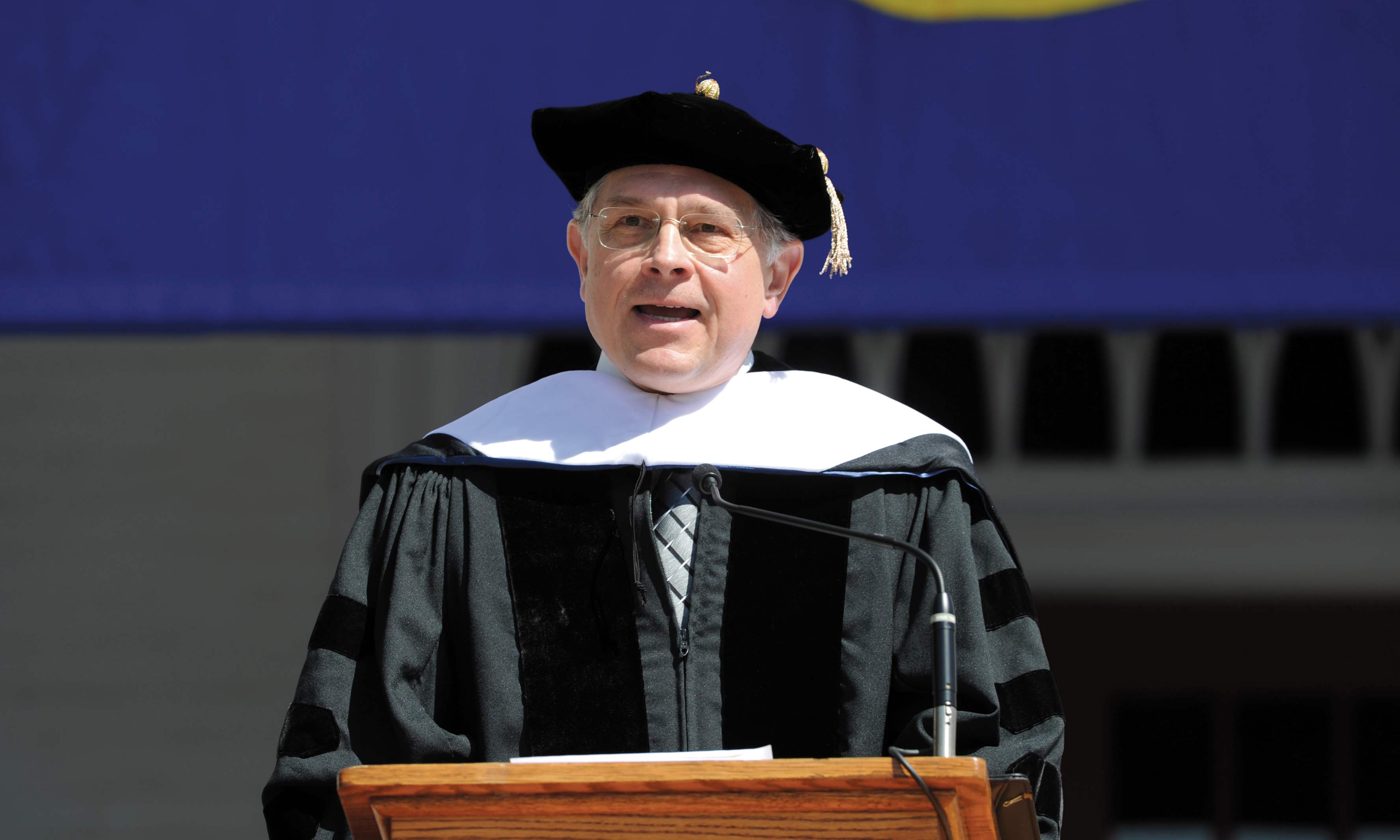
“Juniata taught me to think differently. The small classes gave you the ability to know other people in your class and the faculty, which is really great. It gave you a different orientation toward thinking about what you want and what you can do.” Dr. James Madara ’71, executive vice president and chief executive officer of the american medical association
